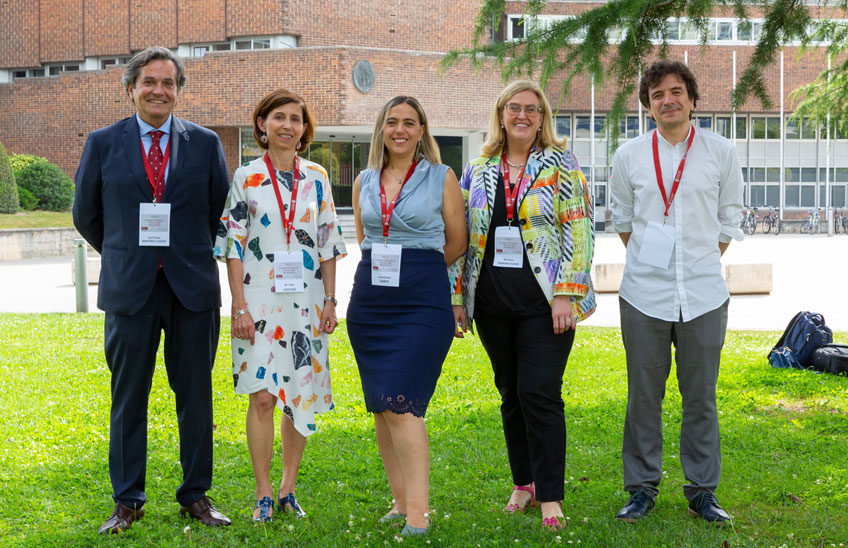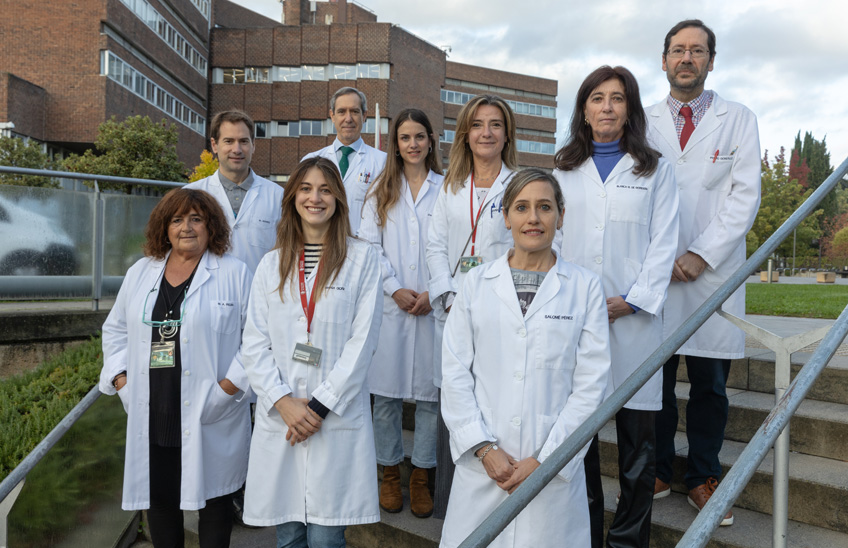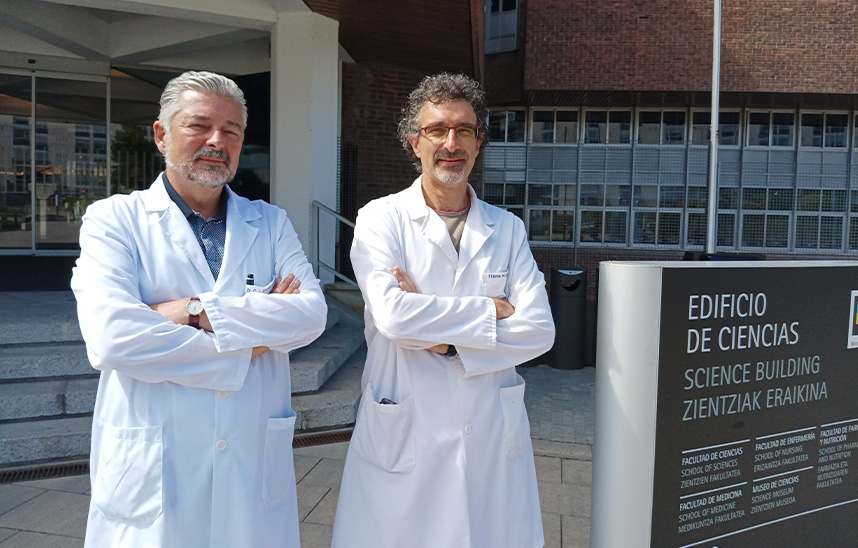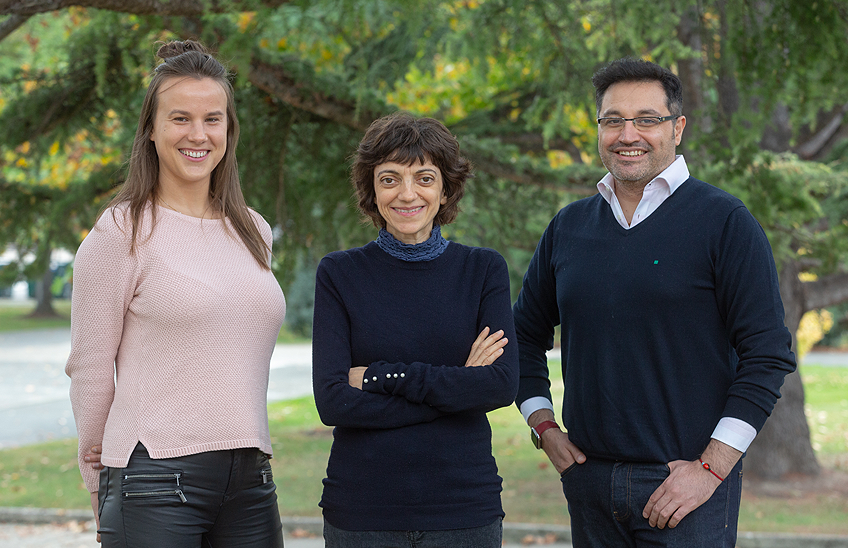"Identifying new mechanisms that lead to tumor cell death is core topic to fight cancer."
150 researchers have participated in an international workshop on cancer, obesity and metabolism held at the University

FotoManuel Castells<br>/Ponentes y organizadores del encuentro. De izquierda a derecha, José Ángel Martínez-Climent, Pilar Lostao, Guadalupe Sabio, María Jesús Moreno-Aliaga y Miguel Burgos.
17 | 06 | 2022
"There are virus-derived elements integrated into our genome - called endogenous retroelements - that are in an inactive, silenced form. By activating these elements after epigenetic therapy, tumour cells react in a similar way to a viral infection, inducing an immune response that leads to tumour death.
Dr. José Ángel Martínez-Climent, researcher of the Haematology-Oncology programme of the Cima University of Navarra, closed the meeting scientific meeting that brought together more than 150 researchers at the University of Navarra to address the relationship between cancer, obesity and metabolism. During his speech, he presented a work that was on the cover of Cancer Discovery, the scientific journal of reference letter in the field of research in oncology, and which identifies new mechanisms that lead to the death of tumour cells, something that the expert considered "of enormous importance in the fight against cancer".
"When these retroelements are activated in tumour cells, not only is an immune response induced, but also the cell's energy is massively consumed, leading to its death," Martínez-Climent explained. "The change in energy metabolism also sensitises tumours to drugs that promote apoptosis (programmed cell death). Therefore, combinations that include epigenetic and pro-apoptotic drugs have a high therapeutic potential in many tumours, regardless of their genetic, histopathological or even clinical characteristics".
In this line, he pointed out that, although therapies aimed at inhibiting epigenetic enzymes are the current treatment for patients with leukaemia, lymphoma and multiple myeloma, the goal is to expand their use in combination with other drugs to other types of currently incurable tumours, such as lung, pancreatic or colon cancer in advanced stages.
Inhibiting p38 gamma protein, core topic in liver cancer
The workshop "Frontiers in Cancer, Obesity and Metabolism" also brought together other leading researchers who reviewed the latest advances in their respective groups at work, many of them associated with research center Biomedica at network Physiopathology of Obesity and Nutrition (Ciberobn) and Cancer (Ciberonc).
Dr. Guadalupe Sabio, a researcher at the Carlos III National Centre for Cardiovascular Research (CNIC), presented the work carried out by her team on the finding of the p38 gamma protein, which is very relevant in the case of liver cancer. "This is a tumour subject for which there are hardly any specific treatments, so the search for new therapeutic targets is of vital importance for patients suffering from this disease".
Thus, his work has focused on demonstrating that this protein is required in the initiation of cell division in liver cells under stress, activating the cell division and cell cycle that occurs in tumour cells. "This finding reveals p38 gamma as a new therapeutic target for liver cancer. By inhibiting a protein that is activated in stressful situations, the drug would not affect other proliferating tissues, thus theoretically avoiding the undesirable side effects of other drugs such as chemotherapy. In addition, previous work by laboratory indicates that it is also a therapeutic target for fatty liver and steatohepatitis, a disease that predisposes to liver cancer.
An approach to obesity and cancer multidisciplinary
More than 150 experts and researchers from 14 countries met quotation at a scientific meeting to address the relationship between cancer, obesity and metabolism, organised by the research center in Nutrition (CIN) of the University of Navarra and the Journal of Physiology and Biochemistry.
Dr María Jesús Moreno-Aliaga, co-organiser of the event, and researcher at CIN and Ciberobn, pointed out the importance of understanding the mechanisms by which obesity predisposes to development to certain types of cancer, such as colorectal, breast, endometrial, and liver cancer, among others".
Along the same lines, Dr. Pilar Lostao, researcher at the CIN, editor of the journal and organiser and speaker of the workshop, highlighted the "richness of such interdisciplinary meetings, where great experts in different areas share the results of their research".



